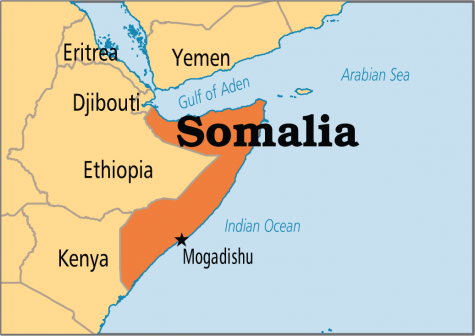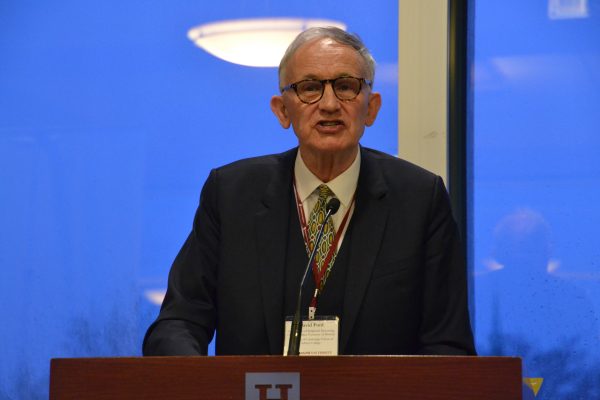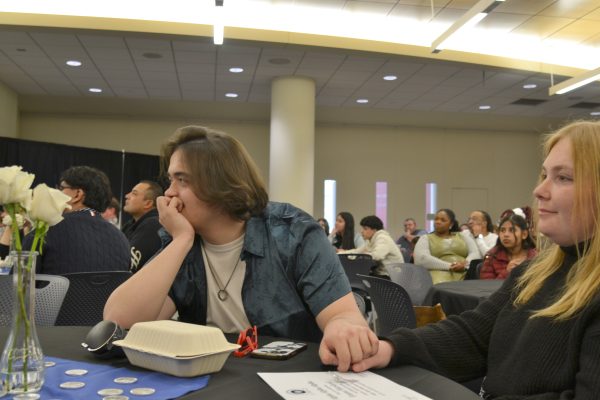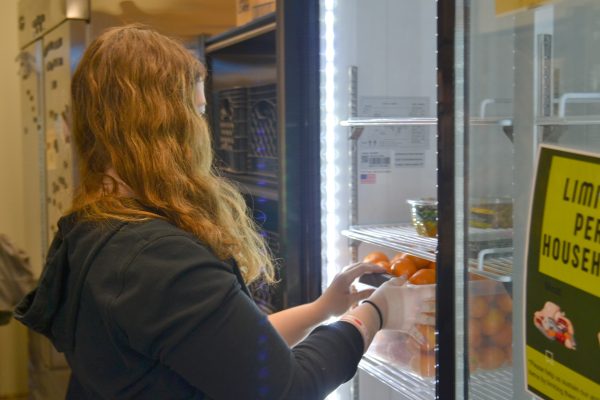Students and staff stand with Somalia
In the wake of tragedy, the Hamline community shares in their grief.
October 25, 2017

By the request of the associate dean and due to the personal connections many students and their families have with the tragedy, Hamline students quoted in this article will not be named.
Anguish arose in Somalia’s capital of Mogadishu on Saturday, Oct. 14, after a truck bombing at the hands of militant group al-Shabaab became the most lethal terror attack in the country’s history, with over 300 dead- and for some Hamline students, the devastation hit too close to home. Like the surrounding Twin Cities area, Hamline is home to a growing Somali-American population, and the Dean of Students Office assembled a gathering on Friday, Oct. 20 from 2 to 3 p.m. in West Hall to mourn the victims of the tragedy and to reflect on the impact it has on the Hamline community.
“We gather in sports, we gather in service, we gather in good times, but it’s also important that we gather when we are troubled,” said Carlos Sneed, the Associate Dean of Students.
Patti Klein, the Dean of Students and Title IX coordinator, was the first person Sneed passed the microphone to. Like Sneed, she stressed the importance of community and support during dark times.
“When tragedy strikes, for some it strikes as a personal connection”, Klein said. “Many times it shatters our hopes for security, for peace… This type of terroristic attack is meant to pull us apart, but we need to know that reaching out for support is a sign of strength, not of weakness.”
After Klein’s statement, several students in attendance, most of them Somali-American themselves, spoke as they felt called in order to share the attack’s effect on their families and their community.
“[The bombing] has affected my immediate and extended family,” said one Somali-American junior. “My mother called me last Sunday after it happened and I could tell something was wrong… One of the first things I thought was, something must have happened in Somalia.”
The student, who was not born in Somalia, but said she lived there for two years, spoke of her family’s memories of their homeland and the stories she has heard about all their happy memories there. She regretted that, in the minds of many people in the West, Somalia has become synonymous with war, when she knows that it means so much more to her loved ones.
“[The victims were] somebody’s mother, daughter, family member, but most importantly, they were human beings who woke up on Saturday with hopes for their country and in the end, had everything taken away,” she said.
She described a conversation with her father, whom she called after hearing the tragic news from her mother “because he’s always the calm, collected one. He told me, one day, the youth will know more than just the war, the sadness of Somalia.” She then concluded her speech with a Somali proverb, “If we can all come together, we could even mend a crack in the sky.”
Another Somali-American student, a first-year, resented the lack of media attention and solidarity the bombing has received in comparison to similar terrorist attacks on Western countries.
“I don’t understand why this hasn’t become a hashtag or a trend, why there’s not a flag filter you can put on your Facebook profile picture,” as there was after the November 2015 attack on Paris.
Several others echoed in agreement what the first-year had said.
“Those 300 lives meant something to someone,” another first-year said through tears. “It’s great that we’re coming here to talk about this, but it shouldn’t be this small- it should be everyone.”
The gathering served as a solemn remembrance of a neglected tragedy, but as well, it was a reminder that every life has value and that processing emotions with others in disaster’s wake is not a sign of immaturity, it is a sign of strength.





